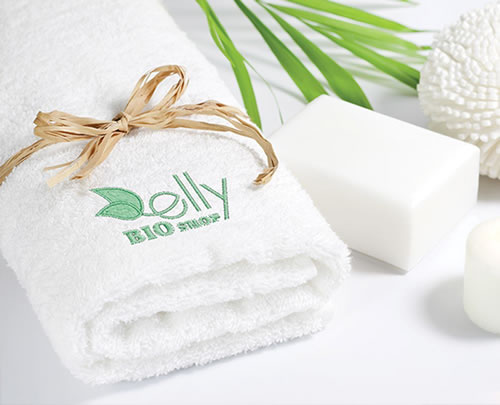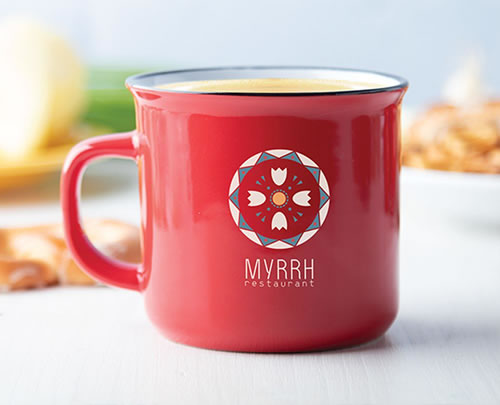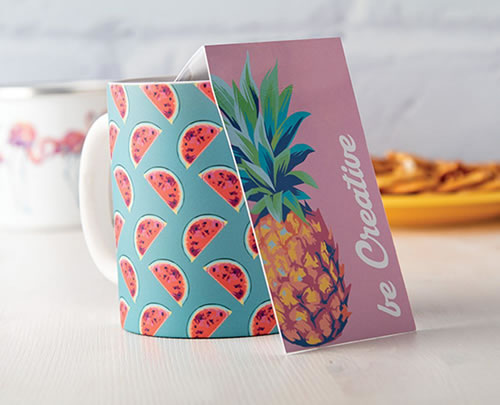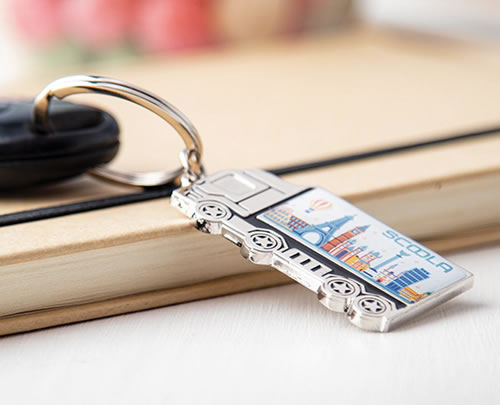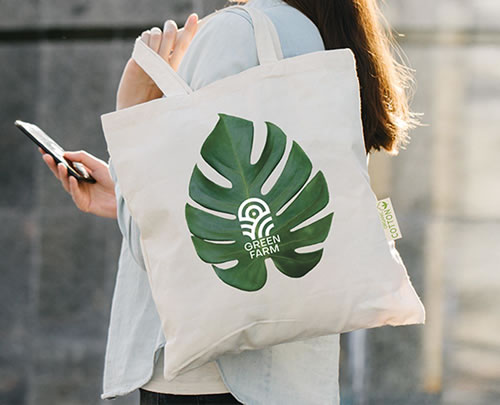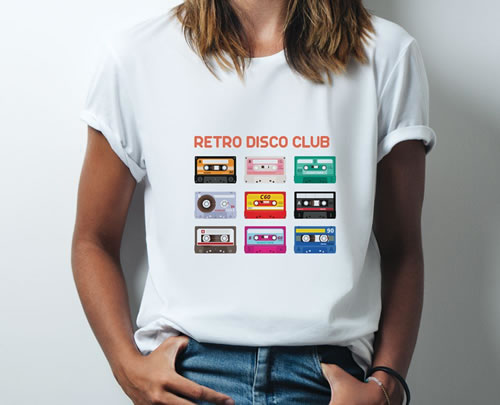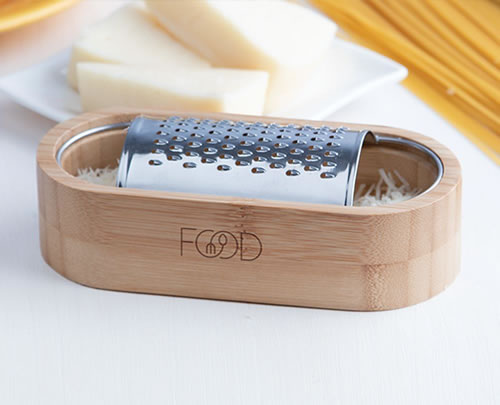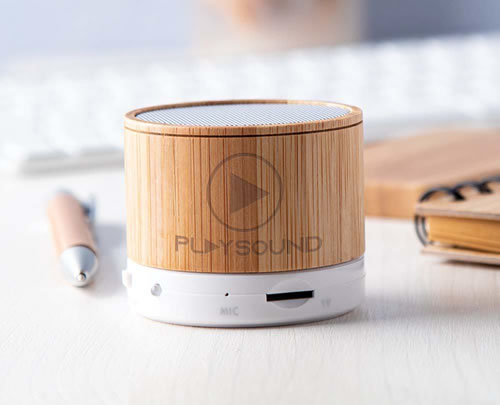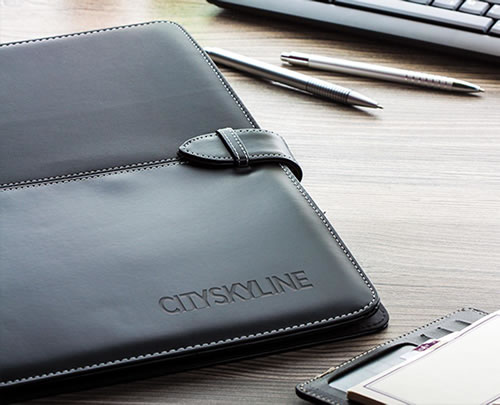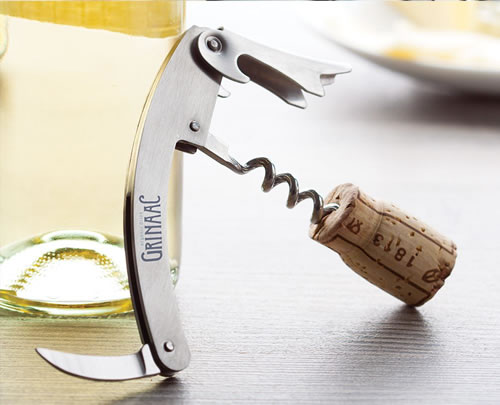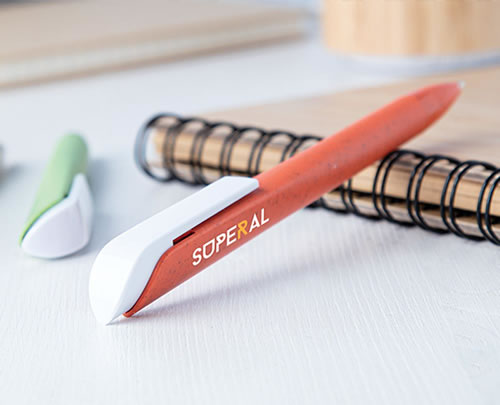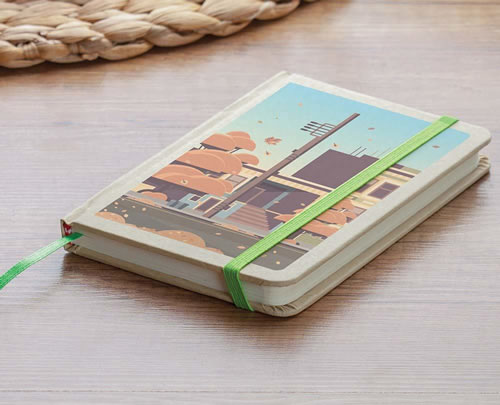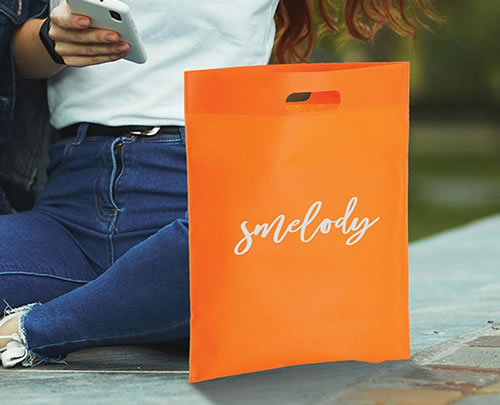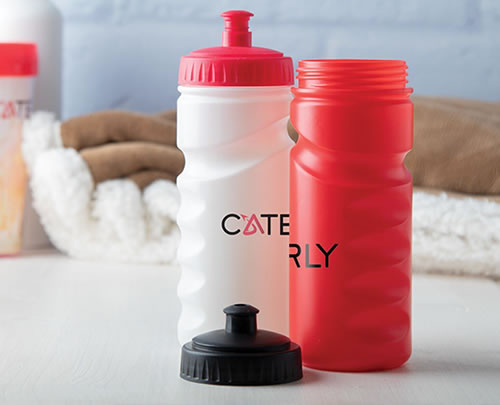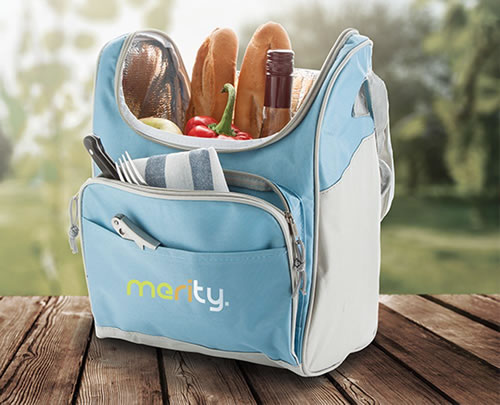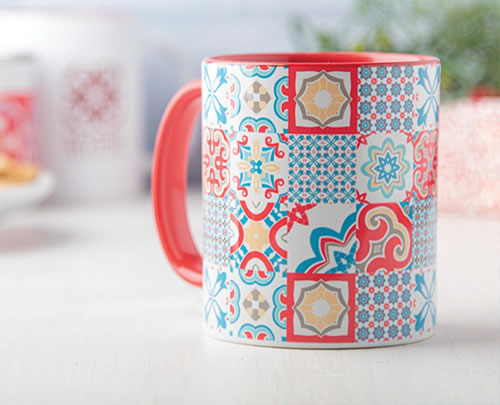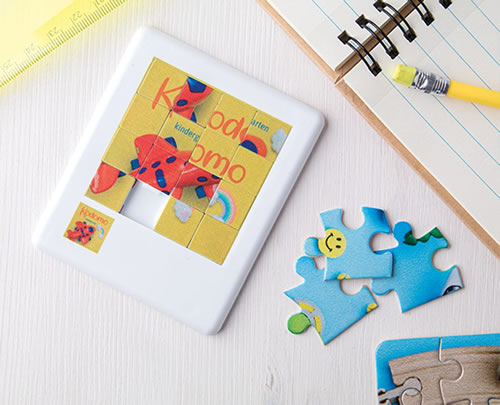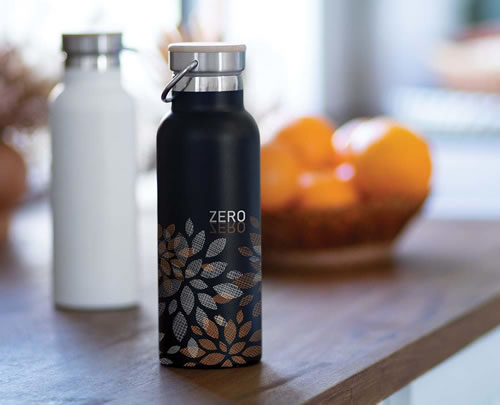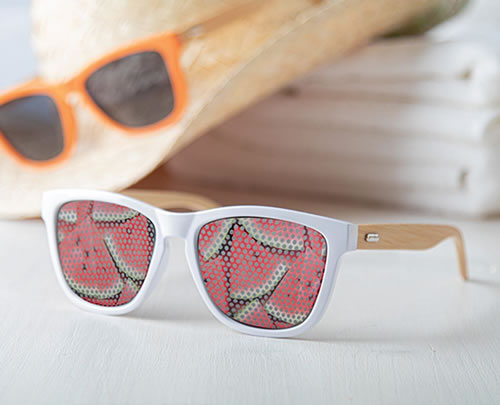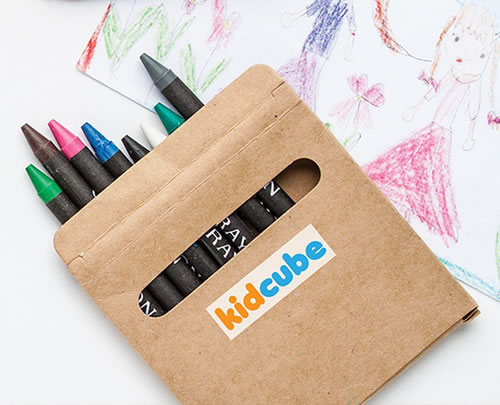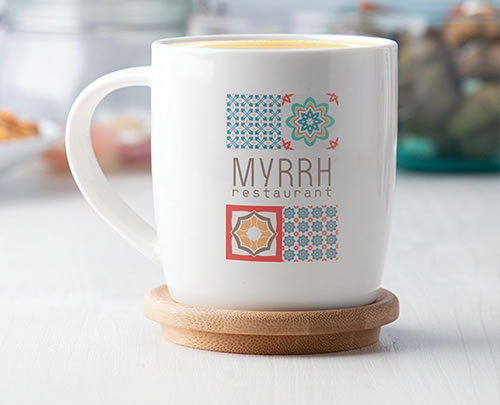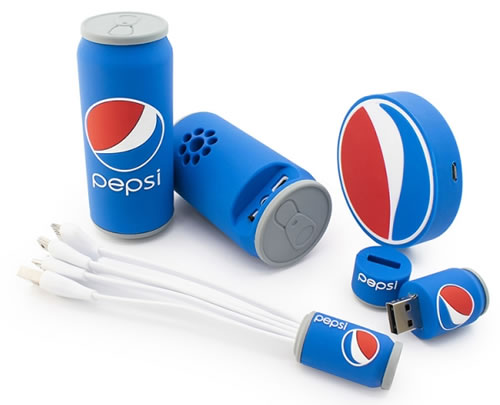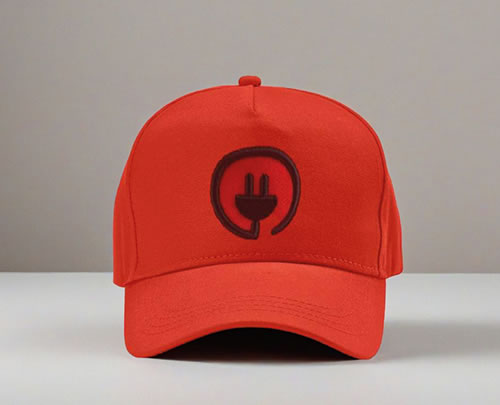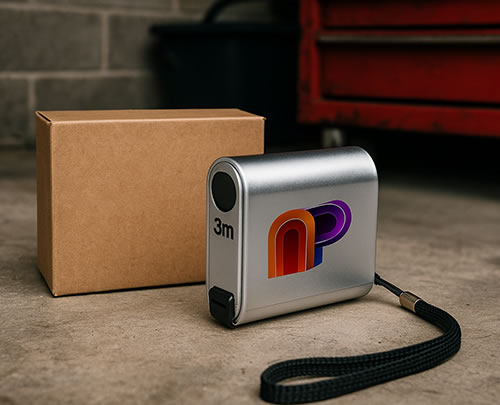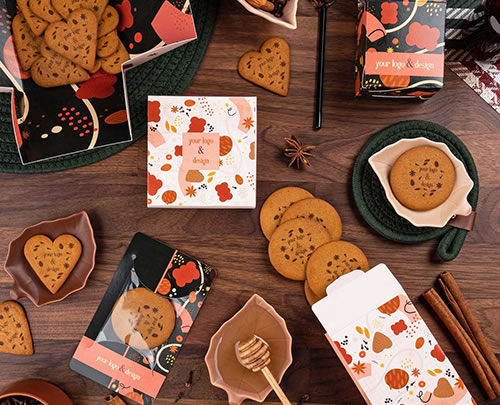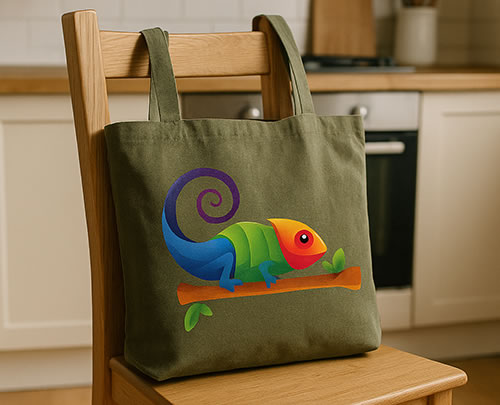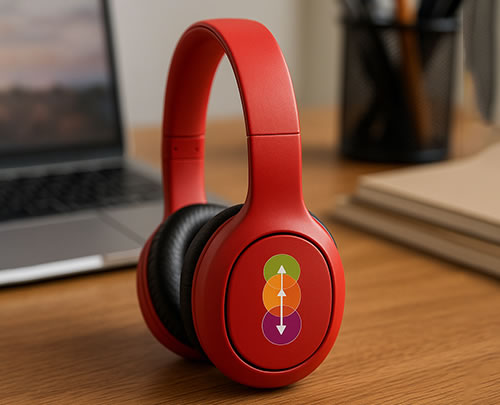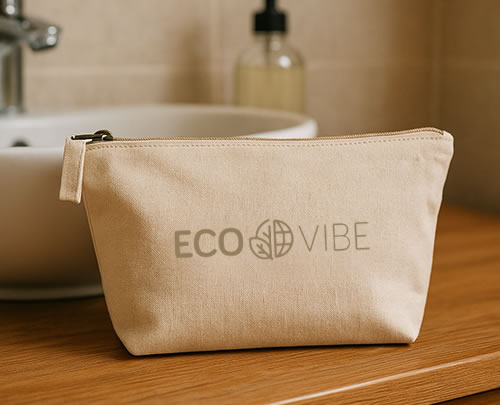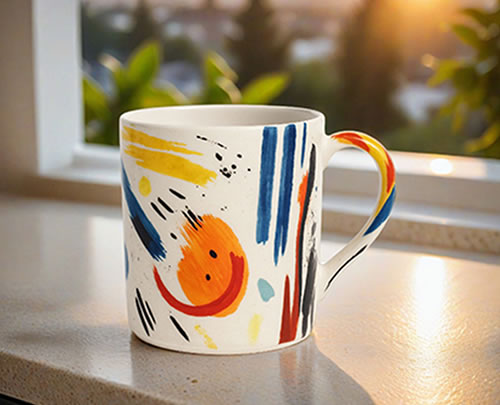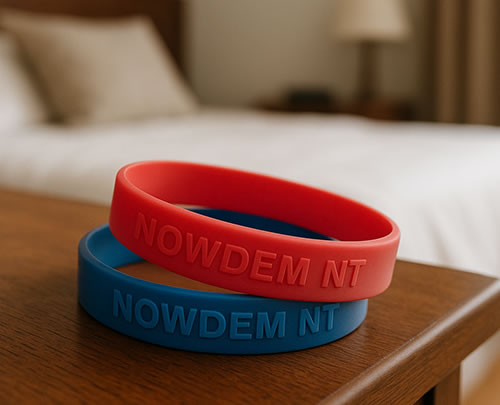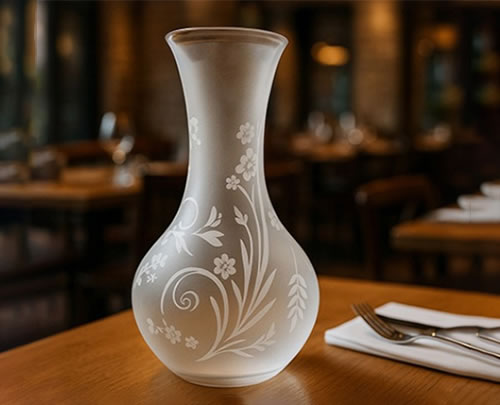Printing techniques
Choosing the best gift - from our wide product collection - for your promotional needs is only half of the success equation. The appearance of your logo or message carries equal importance. In order to ensure the realisation of your brand image, we provide various printing technologies, ranging from traditional methods to state of the art digital technologies.
The following guide aims to give you a brief overview of our labelling techniques and to help you pick the best for your selected item.
Embroidery
Embroidery is used to label textile products, resulting in durable and high-quality imprints, by an automatic embroidery machine which applies thread through needle stitches. Pantone matching is not achievable, due to limited thread colours.
Ceramic printing
Ceramic printing is used to label mugs, glasses and certain metal items using special ceramic paints fired at high temperature. The label is applied to the product similarly to transfer printing, then fired in a furnace.
Digital printing
Digital printing is used to imprint paper products and paper inserts in photo quality. Paper inserts can be produced in various sizes and shapes.
Epoxy doming
Epoxy doming is a unique printing technology, using full-colour printed stickers covered with 2 component resin. As a result, the treated sticker will have a 3-dimensional look. Epoxy domed logos can be produced in custom shapes and are resistant to UV rays.
Digital transfer
Digital transfer printing is a modern, full-colour alternative to traditional transfer printing. The design is printed in photo quality onto transfer paper with a special digital printer, then applied to the product with a heat press. Our digital transfer technology carries no limitation in size or shape of imprints.
Textile digital transfer
Textile digital transfer printing is a variation of digital transfer printing optimised for creating long-lasting, durable prints on clothing and accessories. To maximise imprint durability wash garments below 40 degrees Celsius.
Engraving
Engraving utilises lasers to mark a product's surface. The surface of the product practically burns in the process to develop the logo. Even small logos can be printed very accurately. Engraving is applicable to metal, wooden, glass and certain plastic products.
Rotary Engraving
Rotary engraving utilises lasers to mark the surface of cylindrical products. With the help of a special rotary device the engraved product is rotated during the printing process, allowing a large imprint wrapping the item. Rotary engraving is applicable to metal, wooden, bamboo, glass and certain ceramic products.
Embossing
Embossing is an elegant process that changes the surface of the material that has been embossed, through forming a 3D impression. This impression is achieved by pressing a specially-made die onto the product's surface.
Rainbow engraving
Rainbow engraving is a special laser engraving technology, utilising different wavelength laser beams to achieve coloured imprints on metal items, without the use of inks or chemicals.
Pad printing
Pad printing is the most popular, traditional ink-based labelling method. This technology uses a silicone pad to transfer ink onto an item with fine details and high accuracy, applicable to a wide range of materials. Pad printing allows labelling curved surfaces.
Inkjet Overprinting
Inkjet overprinting is used to imprint flat surfaces in full-colour with a special high-speed inkjet printer. As inkjet overprinting does not utilise white inks, imprint colours may be effected by the base colour of the product. Inkjet overprinting is applicable to porous materials, such as paper, natural bamboo and wood.
Screen printing
Screen printing is a traditional ink-based labelling process, for flat or flattenable products, with high durability and colour accuracy. During the screen printing process ink is directly pressed on the product's surface through a gauze, then fixed with heat treatment.
Rotary screen printing
Rotary screen printing is a special kind of screen printing for labelling bottles. The cylindrical screen printing machine rotates the product parallel with the gauze, resulting in continuous prints throughout the surface of the product.
Transfer printing
Transfer printing is based on traditional screen printing, however, instead of being directly screen printed onto an item, the design is printed onto transfer paper, then applied with a heat press. Transfer printing is applicable to a wide range of products and holds several advantages over screen printing.
Sublimation
Sublimation printing is a full-colour, digital labelling technique with photo quality. Designs are printed with special ink on a transfer paper, then heat-pressed onto the product's surface. Sublimation is only applicable to light coloured polyester and sublimation coated products.
UV led technology
UV LED printing is a full-colour, digital labelling process utilising UV-cured inks. Logos are directly printed on the product's surface in high-resolution, resulting in instant photo quality imprints.
Rotary UV LED Printing
Rotary UV LED printing is a digital, full-colour labelling process to create photo quality imprints directly on the surface of cylindrical and conical items, allowing a large imprint wrapping the item. Rotary UV LED imprints are coated with transparent varnish for an exquisite look and extra durability.
Vision film printing
Vision Film printing is a special printing technique for labelling sunglasses lenses. During the labelling process, a digitally printed and perforated film is applied enabling a high degree of customisation.
Vinyl sticker
Vinyl stickers are digitally printed full-colour, self-adhesive stickers applicable to various, otherwise hard to print, products. Vinyl sticker logos can be produced in various sizes and shapes.
Ceramic white printing
Ceramic white printing is a special full colour printing technology for white ceramic products, which is based on ceramic printing.
Custom built
With the custom-built formula you can decide which shape, color and graphics your product should be realised. The product will be fully customized without limitations of print space or colors.
3D Embroidery
3D embroidery is a special customization technique that makes your logo stand out, as if it were bold. A rubber is placed between the thread and the fabric, making your graphic stand out by at least 3–4 mm. The whole thing is then embroidered with a dense pattern of stitches by a special machine. Particularly suitable for caps, three-dimensional embroidery ennobles the product.
Digital Printing
Digital printing is a modern electrically generated process that allows printing directly onto the product using a roller responsible for transferring the ink. It is a fast and economical process for small and medium runs. The print quality is high and results in bright colors and defined details. Digital printing can be used on different materials such as paper, fabric and aluminum.
Digital Printing with Edible Inks
Digital printing with edible inks is used to print logos, texts and images directly on chocolates, lollipops, biscuits and other sweets. For this process, only specific printers are used together with edible inks that are certified according to current legislation on food safety.
DTF Printing on Fabric
DTF printing allows you to print logos, texts and images in four-color process on fabrics such as cotton, polyester and nylon. Shoppers, hats and clothing give their best if personalized with this modern technique because the print is resistant to washing and wear, has a photographic quality and is also suitable for large print areas.
UV DTF Printing
DTF UV printing is a variant of DTF printing and is the right solution for those looking for a bright and sharp result on rigid materials such as wood, metal, glass and ceramic. UV light dries the ink almost instantly, reducing the risk of smudging and making the print resistant to scratches, rubbing and atmospheric agents.
Laser Engraving of Textiles
Textile engraving is a personalization technique that uses a high-precision laser beam to remove the top layer of the fabric. The result? A logo that is lighter or darker than the original color of the fabric depending on its characteristics. The laser can reproduce even very fine details but the colors are not reproducible. Textile engraving is suitable for shopping bags and clothing for permanent and long-lasting advertising.
Hydro-Dipping HY
Hydro-dipping allows you to customize three-dimensional items in a uniform way. The graphic is printed on a water-soluble film that is then spread over a tub full of water. Activated with a specific product, the film dissolves and only the ink remains on the surface of the water, ready to wrap the product once immersed thanks to the hydrostatic pressure. Hydro-dipping is suitable for ceramic, glass and porcelain mugs and the result does not yellow, does not flake and is resistant to scratches and UV rays.
Embossing
Embossing creates a raised relief in paper, leather and other materials. An embossed pattern is raised against the background resulting in a pleasant tactile effect that ennobles the product making it elegant and refined. The relief is obtained by compressing the surface between two dies, one that is raised and one that is recessed. It is not possible to reproduce colors or overly detailed logos.
Sandblasting
Sandblasting is a technique that allows the surface of the material to be permanently modified by means of a high-pressure jet of sand and air. The result is an engraving that can be felt to the touch like a bas-relief. Sandblasting is used mainly on glass items. It is permanent and scratch-resistant. The colors cannot be reproduced.

